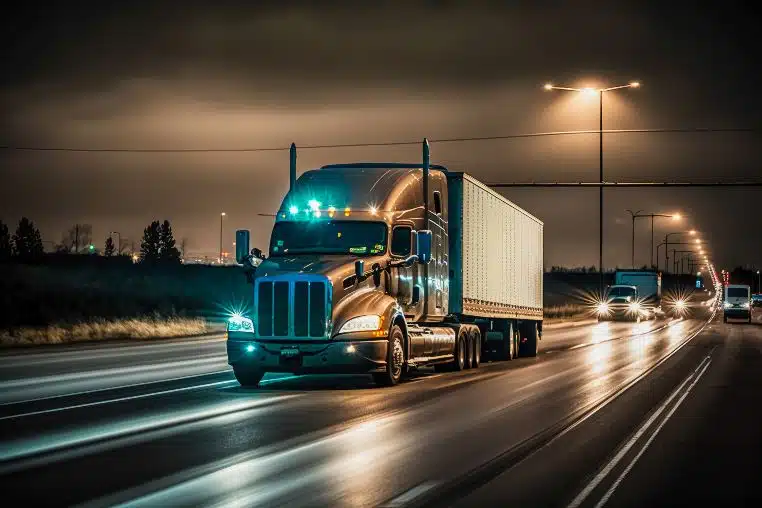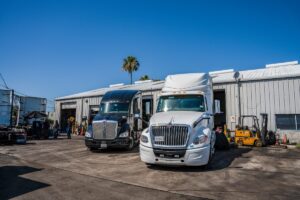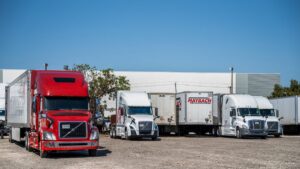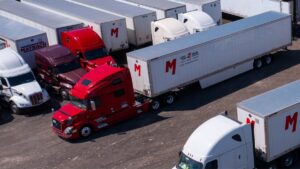An owner-operator is an individual who owns and operates their own small business, typically in the transportation sector. Instead of being an employee or a subcontractor, an owner-operator is both the owner of the truck and its driver, making them responsible for every aspect of their business—from the operation of the vehicle to the management of business finances.
What Do Owner-Operators Do?
Owner-operators have many roles. Their primary one is to transport goods from one location to another, ensuring safe and timely delivery. This includes:
- Driving the truck and ensuring it is maintained and in good working order.
- Following routes and schedules.
- Communicating with clients and dispatchers.
- Keeping accurate records of trips, expenses, and earnings.
- Keeping track of ELD data
Read More: Pros and Cons of Being an Owner-Operator
How Do Owner-Operators Fit in the Truckload Market?
The truckload market is vast, and owner-operators play a crucial role in it. They offer flexibility that larger fleets often can’t. While big companies might have set routes and larger contracts, owner-operators can tap into niche markets or take on last-minute jobs.
Additionally, owner-operators often have closer, more personalized relationships with clients. They provide a level of trust and consistency, especially when they work with returning customers. This personalized service can sometimes result in better rates and more favorable conditions.
What Are Owner-Operator Career Paths?
Starting as an owner-operator is just the beginning. Here are some potential paths one might consider:
- Expanding the Fleet: Some owner-operators choose to purchase additional trucks and hire drivers, transitioning from a single-person operation to a small fleet.
- Specialized Hauling: Transporting regular cargo is one thing, but some owner-operators opt for specialized haulings like refrigerated goods, hazardous materials, or oversized loads, which can command higher rates.
- Brokerage and Dispatch: With enough experience and connections, an owner-operator might decide on setting up their own dispatch service or freight brokerage, connecting shippers with carriers.
Independent Contractor vs. Owner-Operator
While the terms get used interchangeably sometimes, there are distinct differences between independent contractors and owner-operators. An independent contractor is someone who provides a service under a contractual agreement but is not a direct employee. An owner-operator, while also working under a contract, owns their personal equipment and manages all facets of their business.
In essence, all owner-operators can be considered independent contractors, but not all independent contractors are owner-operators. For instance, a driver might lease a truck from a company and operate independently, making them an independent contractor but not an owner-operator.
Owner-Operator Job Description Sample
Position: Owner-Operator
Responsibilities:
- Safely transport goods from point A to point B, ensuring timely delivery.
- Maintain the truck in top condition, conducting regular checks and servicing.
- Plan and manage routes efficiently, considering traffic and weather conditions.
- Communicate effectively with clients, brokers, and dispatchers.
- Keep accurate records of all business operations, including trips, expenses, and income.
- Comply with all federal, state, and local regulations pertaining to the trucking industry.
- Manage business operations, including invoicing, permits, and insurance requirements.
Qualifications:
- Valid CDL (Commercial Driver’s License).
- Clean driving record.
- Strong understanding of the trucking industry and regulations.
- Ability to manage business finances and operations.
- Exceptional time-management and organizational skills.
- Commitment to safety and professionalism.
In conclusion, owner-operators are more than just truck drivers. They are entrepreneurs in the trucking industry, navigating both the open roads and the intricacies of running their own businesses. As the backbone of the transportation sector, they play an essential role in ensuring goods are delivered across the nation efficiently and effectively. Whether you’re considering becoming one or hiring one, understanding the role and responsibilities of an owner-operator is vital.







